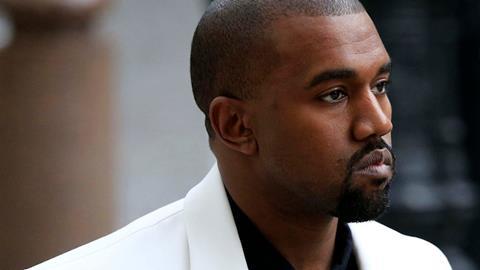
Kanye West is the most fascinating man on the planet. Every track he releases is the subject of fevered anticipation and acclaim; every interview he gives is picked over with the meticulous gaze of a wannabe detective or avid Serial listener. It’s not just music – he’s a fashion designer, husband to one of the most famous women on the planet (Kim Kardashian) and father to their fabulously named daughter, North West. Everything Kanye does is fascinating and seemingly newsworthy.
It’s hard to talk about Kanye without talking about Christianity, because there’s this weird interconnectedness between Yeezus and Jesus in just about everything Kanye has done. ‘Jesus walks’ might be the most explicitly Christian song to hit the airwaves since Cliff’s ‘Millenium Prayer’. (The comparisons between the two, especially with regard to artistic merit, end there. Sorry Cliff.) Just look at a quick selection of these lyrics, some showing the honesty of his struggles with faith: ‘God show me the way because the Devil’s trying to break me down’; ‘I wanna talk to God but I’m afraid ‘cause we ain’t spoke in so long’. He also succinctly sums up the gospel: ‘To the hustlers, killers, murderers, drug dealers, strippers – Jesus walks for them. To the victims of welfare for living in hell here – Jesus walks with them.’ I know we try and claim Mumford and Sons as ‘one of our own’, but Kanye is operating on another level (again we could be talking about artistic merit, sorry Mumfords).
Eleven years on and Kanye still has a faith, recently calling himself a ‘married, Christian man’ at one of his shows, and travelling to Jerusalem with Kim to get North baptised. That faith, however, looks a bit different than it did 11 years ago. His last album, Yeezus, features ‘I am a God’, a song including the lyrics: ‘I am a god, even though I’m a man of God. I know he the most high, but I am the close high.’ Last year a book was produced (not by Kanye, it must be noted) which included the biblical text, but with every mention of God replaced with the rapper’s name, presumably kicking off with, ‘In the beginning Kanye West created the heavens and the Earth’ (which may just be the name of his next album).
Unsurprisingly, when you reach a level in society where everything you do is poured over in meticulous detail, it’s easy to lose a bit of perspective, elevating yourself to a higher plain and relegating the role of faith to another aspect of one’s identity. In one recent interview Kanye equated his addiction to Christianity to his addiction to pornography, seemingly seeing no contradiction there. Perhaps it’s all summed up neatly in that one lyric: ‘I am a god.’ A god. Not the God, a god. One of many, one individual with the power to shape their destiny, yet created by a God overseeing all of it; there is a God but Kanye submits primarily to his own desires – be they graphic or heavenly. He is powerful, smart and self-reliant – he is ‘a god.’ Kanye West’s worldview is indicative of wider society: people don’t think they need God anymore, they’ve got themselves. Our society tells us that we can make the difference, that we can achieve whatever we want, and that we can be whoever we want to be; we are gods.
Cards on the table: I love Kanye. His last two albums have been off-the-charts brilliant, I’m fascinated by him as a guy and I can’t get enough of his faith journey. The reason his interviews are unlike anyone else’s is because he’s not media trained – he’s honest, and vulnerable to the point of caricature. If he thinks his skin colour stops him designing for Nike, he says it, if he views porn and Jesus in the same way, he says it. His track ‘Runaway’ is one of the most honest confessions, from a guy who has screwed up time and time again, that you’ll ever hear. It’s the kind of song that can make people cry and punch the air in empathetic celebration at the same time. Kanye doesn’t just touch a nerve because he’s a genius producer, but does so because he’s real and knows that balance which creates some magical. As he says in ‘Touch the sky’: ‘I’m trying to right my wrongs, but it’s funny them same wrongs helped me write this song.’
You don’t need me to tell you that Kanye’s work doesn’t always line up with kingdom values. The (non-Kanye version) Bible seems to be on the side of the powerless and the oppressed, opposing the proud and those in power; God cares for the underdog. Kanye neatly surmises the choice at the heart of following Jesus – are we the god of our own lives or do we submit to a higher power? Kanye is clearly on a journey and wherever he goes next, whatever he creates, is going to tell us something about both him and society as a whole. This fascinating, flawed genius might be the most important, indicative cultural figure of our time.






























